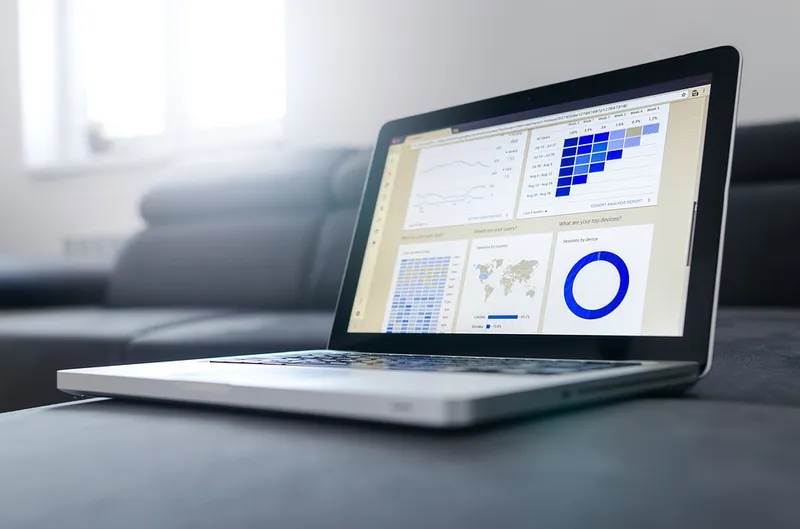
This is a user generated content for MyStory, a YourStory initiative to enable its community to contribute and have their voices heard. The views and writings here reflect that of the author and not of YourStory.

4 Important Things to Consider When Purchasing a New Financial Management Software
To help you find the right financial management software for your business, we have some of the most important things that you need to take into consideration.

This is a user generated content for MyStory, a YourStory initiative to enable its community to contribute and have their voices heard. The views and writings here reflect that of the author and not of YourStory.

If you think that staying with the old-fashioned accounting method is no longer beneficial for your expanding business, then you might want to consider using ERP software. To help you find the right financial management software for your business, we have some of the most important things that you need to take into consideration.
Traditional paper-based accounting is still as effective as it was before and there are still many enterprises across the country that use it. However, doing the pencil-paper accounting consumes a lot of time, making it less practical and less efficient nowadays. Talk about manually doing and maintaining a ledger, a number of columns, and files of documents used to record every essential financial data of the business. Timely bookkeeping and regularly updating of books are not only time-consuming but they are as well a mean task especially if you need to juggle various tasks all at once.

In today’s digital age, everything seems to get automated. With the help of the right technology, things can be done more quickly and more accurately. The same is true with accounting. This is why many businesses (regardless of how large or small they are) are now using enterprise resource planning or ERP financial systems.
As your business continues to prosper, you will also need to upgrade your accounting and to consider automation to meet the demands of your growing enterprise. ERP accounting software will not only make the financial process of your business quicker, it will likewise help avoid or at least reduce human errors in calculations and eliminate repetitive tasks.
Not only that, the ERP software for accounting will also help you gain insights about your business. For instance, you can be able to identify the least profitable products at a glance or generate sales forecasts in just a few steps.
If you think that staying with the old-fashioned accounting method is no longer beneficial for your expanding business, then you may consider using ERP software. To help you find the right financial management software for your business, we have here below some of the most important things that you need to take into consideration.
1.Data security
Every financial information you input in the software should be secured. Thus, you need to check if the software you are planning to get offer strong security features. The accounting software for enterprise with strong security features does not only give you peace of mind but it likewise shows how seriously committed the software company is when it comes to providing you with the best service possible.
Nowadays, many businesses prefer cloud-based or web-based financial software more over the typical desktop-based software. With the web-based financial software, you are able to save your essential data on the external servers and get access to it whenever you need it using your connected accounts.
The software should offer back up for your data and do it as often as you need. Preferably, the web-based financial software’s security features should include firewalls, regular data back up, 256-bit SSL encryption, 24/7 surveillance, multiple data centers, intrusion detection, and other security measures.
2.Customer support
Different financial software offers different levels of customer support. Others offer only chat support, while others provide more help options like phone, online, and email. Some offer technical support plans that you can subscribe to or buy on top of your program while others offer customer help for free.

When picking a new financial software, you need to ask yourself what kind of support you will likely need. Remember, you can’t solely rely on the user manual all the time no matter how detailed it is. There will come a time when you or your staff will need help from someone who is expert about the ins and outs of the software. That is why you need to carefully think and consider what kind of support you want for your team.
3.Know your business well
Before even looking at a single financial software, try to know your business first. Try to carry out a needs analysis to know what features and functions your business will likely need at the present and in the future. You should consider how small or big your company is right now, and at what rate your business will grow in certain periods of time. Also, think about the financial processes your company typical deals with. All these and more will help you find the right program that will best suit your needs and preferences.
4.Ease of use
Regardless of how simple or complicated to use a certain software is, you and your staff will eventually learn how to use it. However, it is still better to opt for financial software that is user-friendly. Your staff will need to learn and get used to using the new software and training them will cost you both time and resources.

We have different definitions of “user-friendly” and it mostly depends on our needs and preferences but in general, you can say that certain software is user-friendly if it is simple to use, it is easy to learn about, and it will provide you with the features you need. The software should simplify your accounting and bookkeeping tasks and not make them more complicated. Not only that an easy-to-use software makes the learning curve less steep, but it also makes it easier for you to roam around more quickly and with ease.
It should have a dashboard that displays the essential financial information you need at a single glance or in just a few clicks. For instance, charts that provide you with a quick view of your company’s financial status, or other financial activities such as cash in and cash out, receivables, inventory, and invoices, to name a few.



